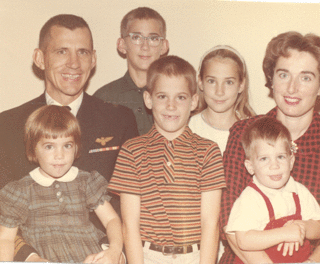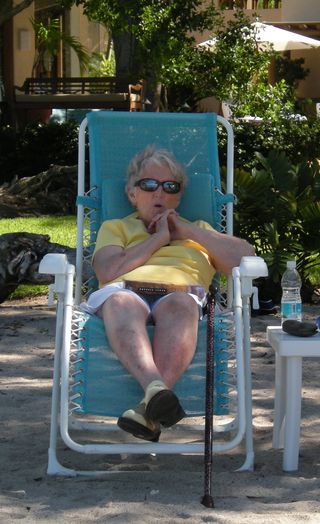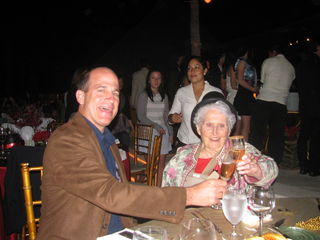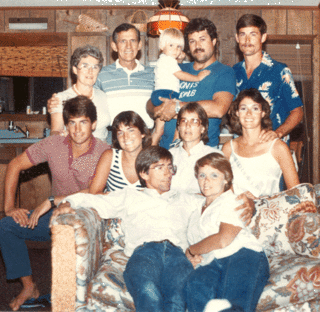Parenting
Parenting a Parent Toward Life’s End
How do you gracefully manage an aging parent's care?
Posted April 27, 2016
In a long stint of wishful thinking, I hoped my mother might take on death like Buddha. She meditated every morning near a round table carved with astrological signs and topped with a large red bible. I invaded her sacred space a few times as a teen, accidentally, stepping away as her one blue eye peered out beneath her glasses. Catholic with a capital “C,” Mom attended mass regularly and challenged the Church’s views with equal consistency. She prayed. She ate well. She did Tai Chi. She lived a long life. Why wouldn’t someone like that greet the end of her life with grace?
She didn’t.
Mom approached death in denial and with claws out. She refused to stop driving until I literally pried the keys from her fingers, while she shouted “I HATE YOU!” Repeat, no pause, repeat. She refused to move closer to any of her five children, or at least move to a smaller apartment or independent living facility.

Always the optimist, I paid for an independent living facility even though Mom did not live there. For those of you who have not faced this crisis yet, good facilities for the elderly are hard to find. We waited a couple of years for the availability of the type of apartment Mom wanted. When it did, Mom was going to give away her spot to some other “old person.” Mom was 83. Fearful that a crisis would happen and we would have no place for Mom, I volunteered to pay.
This facility had meals, activities, transportation and access to university classes. Shoot, I wanted to move there. Mom refused to budge. “Think of it as your winter escape,” I pleaded, “You’ll have access to other people and transportation if it snows.” My sister-in-law shook her head at my logical bargaining. Rip it off like a band-aid she advised. I persisted in the vain belief that my mother would accept her physical decline and act responsibly.
She did not.
Mom preferred to ignore her decline, without regard to her safety or the safety or impact on others. I can’t say I blame her, but she surely did not make it easy. Her drinking increased, her socialization decreased and she began to fall. One day a friend found her in a puddle of blood, and that forced action. My siblings and I packed up her things and moved her. I had paid for the non-used apartment for two years.
I paid for Mom’s first year in the independent living facility when she actually lived there too. This check to the independent living facility bought me hostile phone calls from Mom and visits where she berated me. Mom harassed my other siblings as well, but perhaps because I paid for her care she considered me most at fault. Mom explained to complete strangers that I was the daughter who put her away in a nursing home. I figured that since I was a difficult adolescent, I was getting my payback with interest.

Mom and I finally made peace one day, sitting on a beach. Mom wanted to see the ocean one last time, and I complied. We sat in our folding chairs, tilted back. The waves crashed in a predictable rhythm when Mom offered her unpredictable remark. In her own way, Mom apologized. She maintained her dignity though her body deteriorated bit by bit. “Moving into that place,” she mumbled, “wasn’t such a bad idea.”
I developed a fine-tuned ear to foster my forgiveness.
A few days later she fell, a fall that tumbled to a decline that led to a decision for yet another move to assisted living at the same facility. Mom was furious. The week she was supposed to move, she had massive stroke. Did I mention my mother frequently got the last word?
I got the call from the emergency room. The doctor asked me to approve her transmission to Charlottesville for brain surgery.
“What?” I mumbled into the phone, “Brain surgery? She has a DNR!”
“If you don’t approve this move, your mother will die,” the doctor told me.
Something inside me clicked and I had the presence of mind to ask the physician the best case scenario for brain surgery. My husband kids me about my Spock-like tendencies with regard to medicine (the Vulcan, not the Doctor). He begs our children never to give me the phone if he is in a life-critical situation. In Mom’s case, the doctor said she would be paralyzed on one side of her body, and might regain speech in a year. I knew my mother would kill me if she lived through that. I asked the physician to put Mom on the phone.
“Mom,” I said, “This is it. I’m sorry. I love you and you will soon be with Dad.”
There was silence on the other end of the phone, then my mom asked “Dancing the polka?” I assured her yes.
All my siblings had a chance to say good-bye over the phone. We flew and drove from all points of the country to Harrisonburg, VA to be by her side when she died. Mom was in a coma by that point. We said our good-byes and then awkwardly stared at each other wondering what to do next. The doctors said she could live hours or three weeks. Mom, being Mom, hung on – reluctant to be the first one to leave any party.

So we left her. We elected my oldest brother to be with Mom while the rest of us packed up her apartment. I had planned to be in Harrisonburg that week because we were moving her into assisted living. In the flurry of the stroke, I had forgotten to cancel the movers. We said our good-byes (again), leaving my brother on guard to call if she passed.
I know people will be critical of us for leaving. I talk about leaving my father’s bedside in my book and have been criticized for that. Some people do this because they’ve never lived through this experience. Others have sat patiently with a dying parent or friend and just think I’m a jerk. I can’t please them. But I have to wonder if Mom needed us to leave so she could leave this life. Dying, I’ve learned the hard way, is not easy.
She died a few hours after we left her side. My sister and I were packing up my mom’s Chico’s jackets. Mom had a penchant for Chico’s, never saw a jacket she didn’t want. Her closet was full with at least 30 of them. As my sister and I packed these jackets for a non-profit that helps women enter the workforce, one of us quipped, “if this doesn’t kill her, I don’t know what will.” Probably I said it, my sister is far too nice to say this. I have inherited my mother’s sharp tongue that lashes at inappropriate moments.
The phone rang immediately after that. My brother let us know the news.
Many of my friends are reaching the age where their parents are dying. Both of my parents were dead before I reached the age of 51; my dad died when I was almost 25.

My friends have that stunned look I remember too well. A few of them have apologized for not being helpful for me when my mom declined into death. I assure them it’s ok. Dealing with a dying parent is hard to understand until you are thrust into the inevitable situation. They couldn’t have known what to do or what I needed. I surely didn’t.
Life does not come with a handbook for dying parents, I wish it did. There is a wonderful book titled Being Mortal by Atul Gawande that comes as close as I’ve seen. This blog is for all my friends who have parents ill or ailing. My heart is with you. Take time, cherish those final years, but realize it won’t be picture perfect at the end. I’ve said good-bye to both my parents and neither went like Buddha. They both firmly believed in an afterlife and had lived full lives.
My guess is I will not accept death like Buddha either. Will any of us? This is an illusion crafted by made-for-broadcast images. Families gathered around bedsides, saying a prayer, peacefully watching a loved one take a last breath. My experience is that death is beautiful, but preceded by stale odors and decay.
I have no magic answer to survive that strange transition when child becomes parent and parent becomes child. Death is the birth process gone backwards, without a nine-month time limit. Without knowing the length of the race, it’s hard to find your pace. You will stumble—please forgive yourself. In the meantime, my suggestions are three: talk to a friend, say a prayer and breathe.
You can find out more about Julie K. Hersh, Struck by Living or Decidí Vivir on her website.




